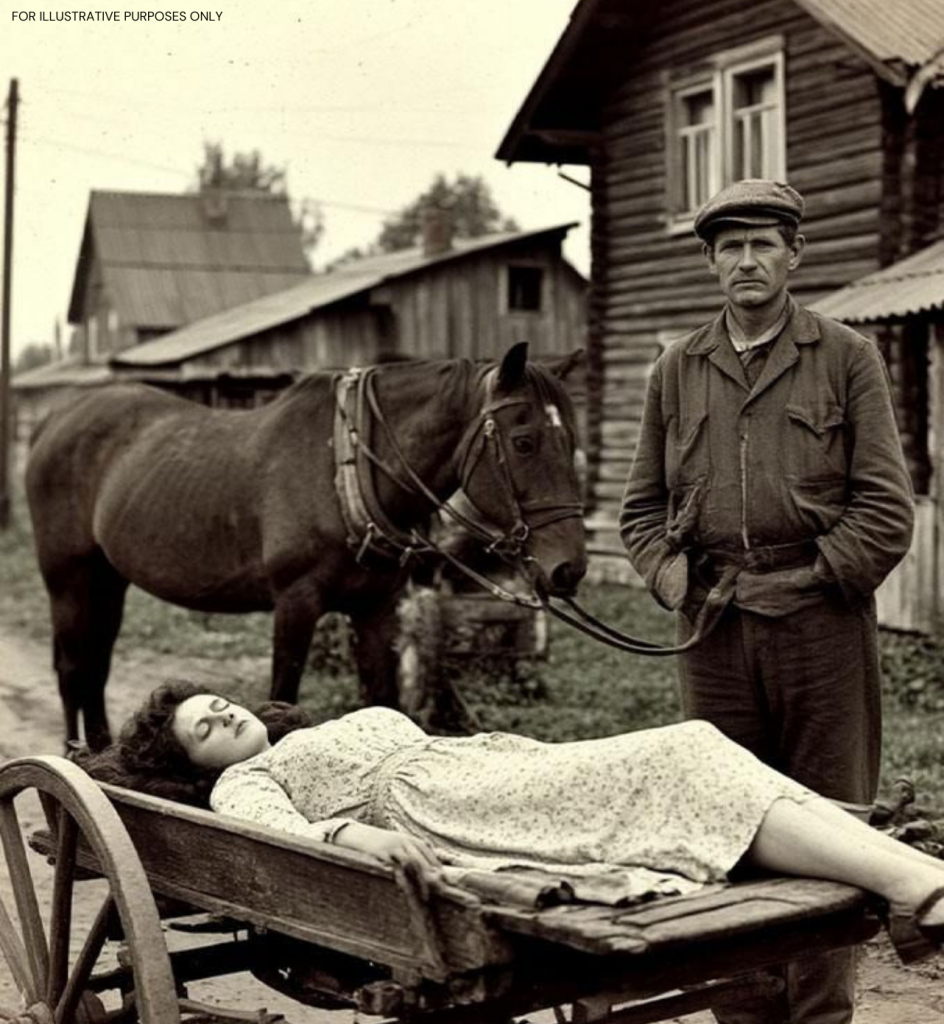
Valentina married Artem at twenty-two, dreaming of a home filled with love and warmth. Artem, older and quiet, seemed supportive in his silence. But her mother-in-law always made her feel unworthy. No matter how hard Valya tried, it was never enough.
When Valya fell ill, she hid her pain, believing it was just fatigue. The diagnosis came too late: late-stage, inoperable. Despite her suffering, she continued to care for Artem, enduring her mother-in-law’s constant criticism. Artem became distant, his coldness growing.
One day, her mother-in-law told Artem, “She’s just a burden. Send her to the village, and you can start over.” The next day, Artem packed her things, drove her to the countryside, and left her there.
Valya knew it wasn’t the illness that killed her, but the betrayal. As Artem left, she whispered, “Will you come back?” He only nodded briefly and drove away.
***
Local women brought food, and Aunt Dunya checked on Valya as she lay for months, staring at the ceiling and listening to the rain. Death seemed to delay, but after three months, a young feldsher came to offer care. Valya didn’t ask for help, just didn’t want to die.
A miracle occurred. She got out of bed, stepped onto the porch, and later went to the shop, surprising everyone. When asked if she was coming back to life, Valya simply said, “I don’t know, I just want to live.”
***
A year later, Artem arrived in the village, holding papers and looking tense. After speaking to the neighbors, he approached the house and saw Valentina sitting on the porch, wrapped in a blanket, sipping tea. She looked healthy, and Artem was stunned.
“You’re alive?” he asked.
Valentina calmly responded, “Did you expect something else?”
She continued, “I wanted to die in that cold house, but someone came every evening, expecting nothing. You left me, not because you couldn’t, but because you didn’t want to.”
Artem lowered his head and walked to the car. Aunt Dunya, watching from the door, said, “Go, and don’t come back.”
***
A week after Artem left, Valentina accepted that love, marriage, and betrayal were behind her. A notary arrived with documents saying she inherited her father’s apartment and bank account. Nina later told her Artem had arranged a memorial and sold their apartment, erasing her from the world.
Two days later, Valya went to the city with Ilya, confirming the apartment and money were hers. In the market, she saw Artem with a pregnant woman and his sick mother. When he froze, she calmly reminded him she hadn’t stayed dead. She walked away, and Ilya, waiting by the car, asked if everything was okay. Valya replied, “Now it is. I’ve reclaimed my name.”
Months passed, and Valentina settled into her new life, knitting again and feeling the pain fade. Ilya often visited, and one evening, Valya said, “For the first time, I feel alive.” Ilya smiled, “You’re stronger than you think.”
A month later, Valya learned she was pregnant. Ilya hugged her, saying, “We’ll manage. Together.”
One day, Valya read about Artem’s fraud charges. She whispered to her belly, “You’ll have a mom and a real dad.”
The birth was difficult, but Valya held her daughter, Liza, strong and healthy. A year later, Valya and Ilya were with their daughter. Valya smiled, saying, “She has your eyes.” Ilya replied, “And your strength.” Valya whispered, “My strength is you two.”
She had found paradise after enduring hell.
***
Two years later, Valya’s life seemed perfect, but a letter revealed Ilya’s criminal past and his changed surname. Valya discovered the truth when she found her personal records in his office, and Ilya admitted he knew everything but stayed for her.
Valya moved with Lisa, but threats continued. One warned, “If you don’t come, your daughter won’t live to see school.” At the park, a man warned her about the danger of the documents. She later gave them to journalist Trofimov, who said, “This is a real bomb. They won’t leave you alone now.” Valya responded, “I won’t stay silent anymore.”
The article triggered arrests, and Valya hugged Lisa, saying, “You are my sunshine.” A week later, Ilya returned, admitting he was part of the game but that she was the meaning. Valya agreed, saying, “One condition: no more lies.”
Six months later, the case was closed, but Valya gained freedom, justice, and trust, beginning to write about women, betrayal, and hope, stating, “The darkness is never eternal. The sun always returns.”